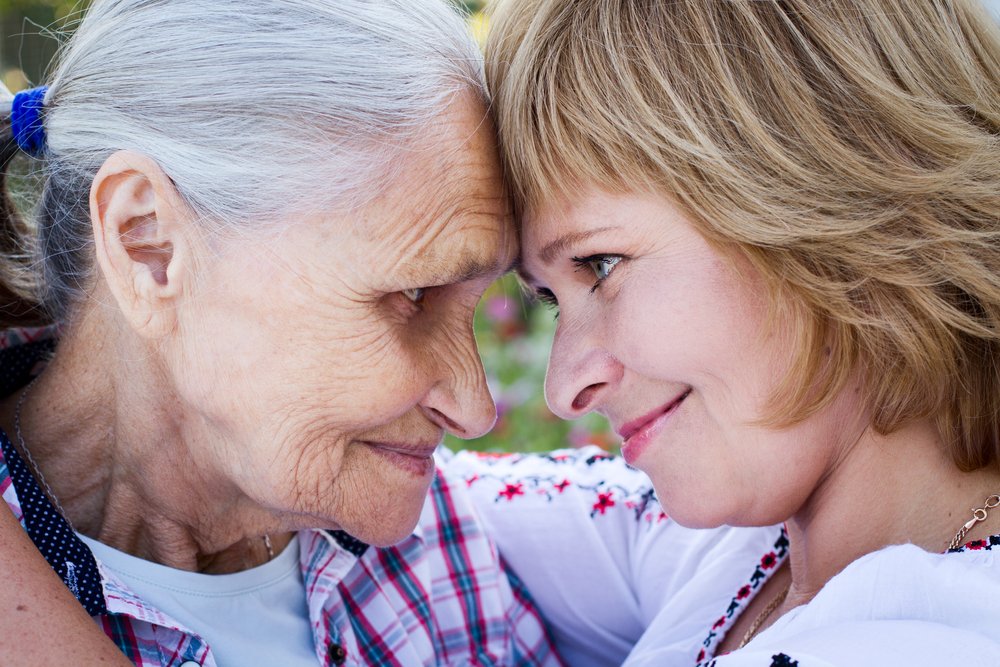Alzheimer’s Caregiving and Its Challenges: Interview with Monica Moreno of the Alzheimer’s Association

People caring for a family member with Alzheimer’s disease — especially women — often face a financial and emotional burden more severe than that experienced by others caring for those with chronic diseases, two surveys, both by groups connected to Alzheimer’s, recently showed.
To learn more about why such care is so difficult, and what the association does to help ease that burden, Alzheimer’s News Today spoke to Monica Moreno, senior director of care and support at the Alzheimer’s Association, which commissioned one of the surveys.
“A diagnosis of Alzheimer’s disease or other dementia impacts the entire family,” Moreno said. “At its core, families experience the gradual decline of someone they love. This leads to feelings of loss, grief, and sadness. The experience can be overwhelming and place an incredible strain on families.” She underscored that women are particularly affected.
Years upon years
Why is caring for someone with Alzheimer’s, or another dementia, so particularly difficult? In addition to the stress of watching a loved one slowly fade away, Moreno said, the disease has a long duration.
People with Alzheimer’s live for an average of four-to-eight years after diagnosis. Many live far longer. And as the disease progresses, a person with Alzheimer’s becomes increasingly dependent on a caregiver.
Another survey found that Alzheimer’s caregivers spend more time caring for their loved one compared to caregivers for other chronic ills. This is a physically and emotionally demanding situation, Moreno said.
Women are at the epicenter of what she calls “the Alzheimer’s crisis.” Women are more likely to get Alzheimer’s, and they act as caregivers to a larger extent than men.
“Of all dementia caregivers who provide care for more than 40 hours a week – 69 percent are women,” she said, adding that 63 percent of these women have provided care to someone with dementia for more than five years. Only 37 percent of men have done so. “Women are bearing an incredible burden in regard to Alzheimer’s.”
Caregivers, she added, need to make sure to secure their own health, as sacrificing their health for the sake of caregiving does neither the patient nor the caregiver any good.
Strained family ties
Most people in the Alzheimer’s Association survey — a mix of caregivers and people without caregiving responsibilities — agreed that it often takes a village to care for someone with Alzheimer’s disease.
Despite the near unanimity in responses to that statement, the survey also found that nearly two-thirds of caregivers often feel isolated in their task.
This disconnect between theory and practice, where 84 percent of caregivers wished for more support, was a surprise to Moreno. Strained relationships were particularly noted among siblings, who often felt unsupported and undervalued in their caregiving responsibilities.
Unprepared for financial strains
Adding to the stress of caring for someone with Alzheimer’s is the lack of financial planning for care seen in the association’s survey.
“The reality is that very few people are prepared for the cost of caring for someone living with Alzheimer’s. Many believe health insurance or Medicare will cover costs, but costs extend well beyond these coverages,” said Moreno, underscoring that Medicare will not help pay for nursing home care, despite what many people believe. While Medicaid does, she points out that families may have to spend down their assets to qualify.
Paid caregiving services play an important role in this equation. “Our survey indicates the burden of caring for someone with the disease is too much for any one person to shoulder,” Moreno said. And as the majority of people would prefer paid care to burdening a family member, financial planning becomes even more important.
While the association encourages families to plan for a potential future Alzheimer’s diagnosis, the harsh reality is that many lack the means to adequately do so. We asked what was being done to support those ill-prepared to be caregivers.
“For starters, it’s essential to preserve Medicaid coverage for people living with Alzheimer’s,” Moreno said. Medicaid pays for nursing home and other long-term care services, which most Alzheimer’s patients will eventually need.
But family-centered home and community-based care options also need more support, she underscored.
Advocacy efforts by the association are starting to pay off, she noted. The Centers for Medicare and Medicaid Services are now paying for cognitive functional assessment and care planning sessions for Alzheimer’s patients and their caregivers. These sessions — Moreno points out — are an important benefit as planning improves outcomes for both patients and caregivers.
Moving forward
One bright spot in the surveys: Some families became closer through the experience of helping an ailing loved one, and some stated the caregiving experience gave them a better perspective on life.
Spouses were among those who best managed the hardships a diagnosis brought. In fact, many reported becoming closer in the years following a diagnosis. Their responses also serve as a possible guide to others giving care: “Being emotionally there for each other,” these caregivers said, provided the strength they needed to go about their tasks.
Looking beyond the survey, Moreno says that she sees common themes in those families who best manage caregiving challenges.
“First and foremost, these families support each other,” Moreno said. “There also tends to be ongoing communication between members and a willingness to divide and conquer caregiving tasks.”
But she added that education about the disease and the specific challenges caregivers face is essential to succeeding at the task, helping to address issues that arise as the disease progresses.
“We hope the survey shines a light on the need for families to work together in navigating what is a very difficult journey,” Moreno said.
The Alzheimer’s Association has used these and other observations of people handling caregiving to create resources for caregivers and families of Alzheimer’s patients. An overview of these resources can be found here.






